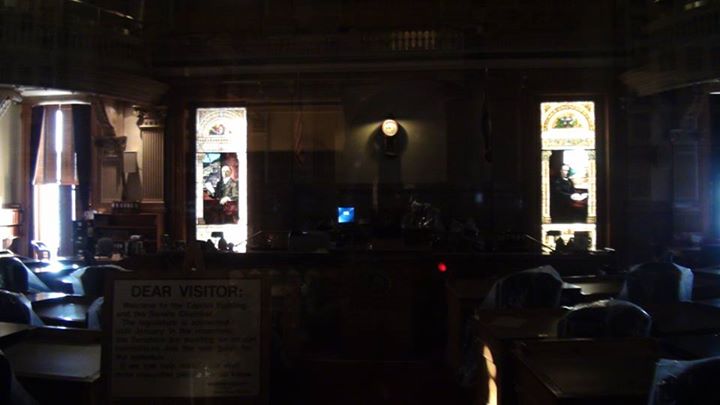
Wednesday, 11 December 2013
For one believes he may eat all things, but he who is weak eats only vegetables.Romans 14:2
Concerning matters of conscience (doubtful things) Paul now begins with food. He says that “one believes he may eat all things.” This refers to a person well-grounded in Scripture. He understands the dispensational model and what God has ordained. After the flood, God told Noah that, “Every moving thing that lives shall be food for you. I have given you all things, even as the green herbs.” (Genesis 9:3)
This has never been revoked for non-Israelites. After this, at the time of the giving of the law, God gave dietary restrictions to the nation of Israel. These restrictions applied to them, and to them alone. These fell under the law and the law is now obsolete in Christ (Hebrews 7:18, 8:13, 10:9 – among many other passages). There are now NO dietary restrictions because the only change to what was ordained at Noah’s time (the Law of Moses) is set aside in Christ. This is confirmed, explicitly, in Acts 15:18-21 and it is testified to by Paul time and time again in his writings. The Christian is at liberty to “eat all things.”
However, Paul goes on. “But” is given to show a contrast to this thought. This is concerning “he who is weak.” This individual, weak in the faith and in the understanding of the freedom found in Christ “eats only vegetables.” Such a person may have a conscience about the slaughtering of animals for food (not understanding what God has ordained). Or they may have a conscience about the use of slaughtered animals which are killed and dedicated to an idol (see 1 Corinthians 8 which discusses this issue in detail). Finally, they may have come out of Judaism and be weak in their ability to overcome the dietary restrictions of the law they left behind to receive Christ.
People who fit into this “weak” category are those who have a conscience that is not developed enough to understand these freedoms properly. What they need is sound instruction, not a belligerent attitude. Knowing your Bible and being able to explain the passages above will set them on a course of proper understanding and into the freedom of the faith.
However, and having noted this admonition from Paul, it is to be understood that the Bible is now complete; at Paul’s time, it was still being written. It is also set, fixed, and understandable. If an individual receives this instruction properly and remains defiant and hostile towards those who exercise their freedom, they are usurping God’s rule and what God has ordained. If they don’t eat meat for personal reasons, they need to remain quiet about it and not be arrogant or antagonistic towards those who do. If their attitude is improper towards meat eaters, they are to be wholly rejected as unsound teachers, even heretics. Paul could not be clearer that reinserting precepts from the law is “another gospel” and is to be condemned (see Galatians 1:8).
The issue comes down to:
1) Knowledge
2) Sensitivity
3) The introduction of heresy
The sound Christian is to carefully weigh the source and the attitude of the individual to determine these precepts. Although jumping ahead in the context of Romans 14, it is a good time to look at this issue from outside a myopic viewpoint on the matter of food. If Paul says, “one believes he may eat all things” and he doesn’t later correct this during his discussion (which he will not), then it shows definitively that a believer can, in fact, eat all things. There is complete freedom in Christ to eat anything that has been given by God for the people of the world. Stand fast in this and do not be led astray through aberrant teachings.
Life application: Pass the ham, please.
Lord, with the work of Christ complete, You have shown us that the law is fulfilled in Him and it is therefore set aside in Him. Thank You for His work which I could never have accomplished. Help me to exercise my liberties in Christ in a way which glorifies You and which is sensitive to those around me while still being firm in the truth of what You have ordained. Amen.

